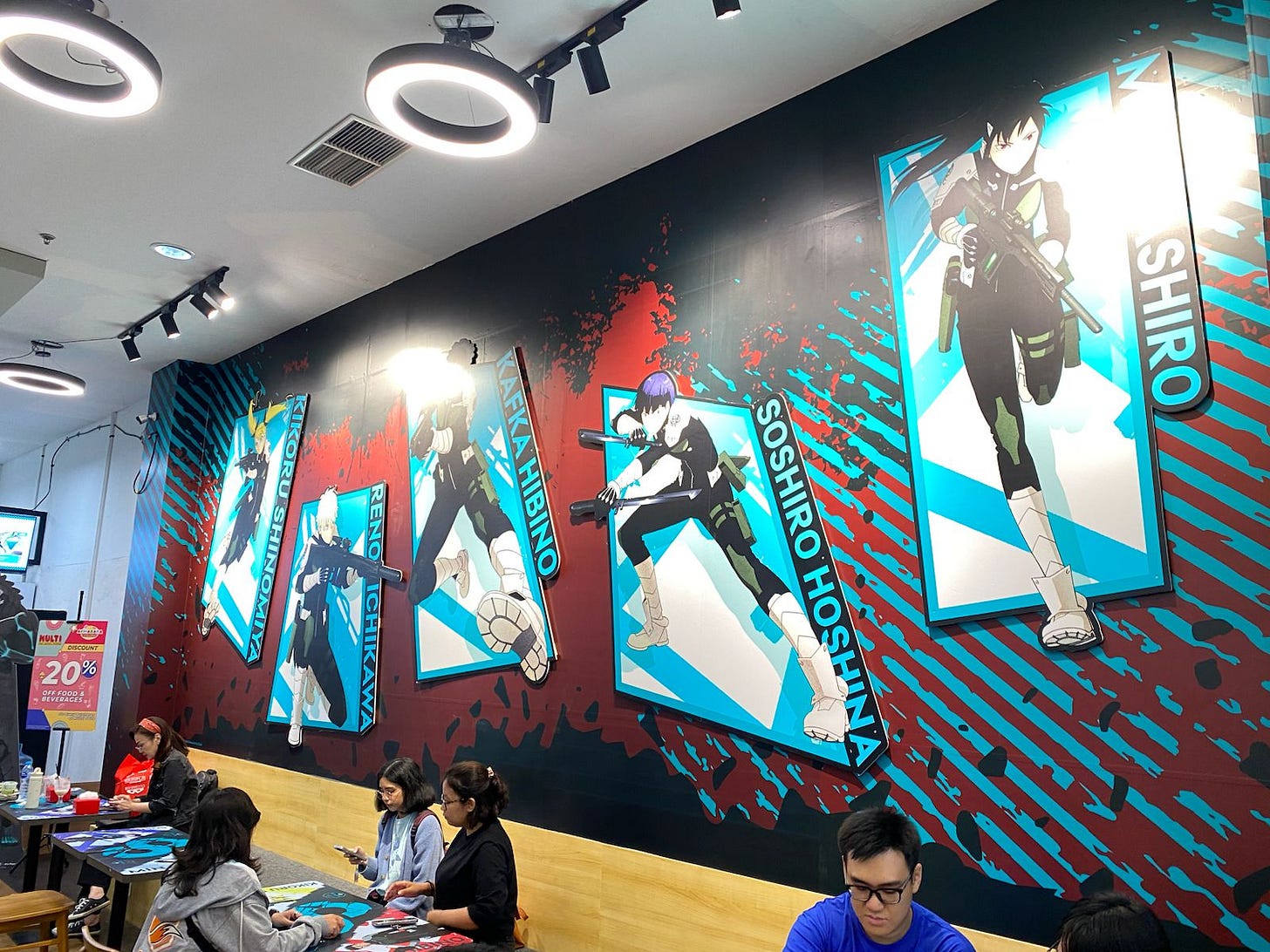Anime cafes brew fandom in Southeast Asia
From anime-adorned lattes to narrative-inspired curries, a wave of cafes in the region is leveraging pop culture fandom to create vibrant, community-focused culinary destinations
This is a feature story from Animenomics, covering the business of anime and manga. Today’s story is written by Jakarta-based correspondent Yohana Belinda.

Southeast Asia’s dynamic economic landscape is fueling a particularly robust expansion within its food and beverage industry, a trend most visibly exemplified by the region’s burgeoning and innovative cafe sector.
Southeast Asia has experienced a pronounced rise in the availability of modern and specialty coffee, driven by a competitive mix of international and domestic chains. This growth has established a modern coffee market valued at US$3.4 billion in 2023, with Indonesia and Thailand leading as the largest markets at US$947 million and US$807 million in turnover, respectively, according to Momentum Works.
Paralleling this growth is the expansion of anime fandom, which has spurred collaborations and dedicated cafes that often prioritize thematic immersion over the quality (specialty) of their coffee offerings.
Erik Thianto, owner of Indonesia’s Multi Toys & Cafe, the country’s largest toy retailer, has navigated the anime cafe market since 2023. He confirms a powerful interest in anime culture but identifies significant hurdles for new ventures, such as developing a food menu that would resonate with local Indonesian tastes and curating a welcoming environment for both dedicated fans and those new to the community.
“In Indonesia, for instance, a core objective for an anime cafe is to introduce the culture to a broader, uninitiated audience. This extends to the menu, where we focus on using colors that vividly represent specific characters. However, certain specialized tastes and dishes may not have universal appeal, making it essential to also offer widely accepted options, such as Japanese curry, to ensure there is something for every consumer,” Thianto said.
Emerging from its epicenter in Japan during the early 2000s, the anime cafe phenomenon swiftly transcended its domestic appeal. These establishments became significant cultural portals, attracting not only local enthusiasts but also international tourists, thereby acting as catalysts for the global proliferation of Japanese pop culture.
The trend quickly took root across Southeast Asia, with notable establishments emerging in Indonesia, Thailand, and Singapore. A prime example was the region's first official Studio Ghibli cafe, May’s Garden House Restaurant, which opened in Bangkok in 2018. Often called the Totoro Cafe, it ultimately closed due to COVID-19 regulations, illustrating the market’s susceptibility to external shocks.
Despite such setbacks, interest in the intersection of anime and food and beverage has continued to thrive across Southeast Asia, exemplified by several Indonesian coffee brands securing major anime franchise partnerships. Tomoro Coffee collaborated with Jujutsu Kaisen and Kopi Kenangan with One Piece, with each franchise developing special menus and merchandise specifically for the country’s dedicated anime fan base.



